TRADITIONAL SCOTTISH SHORTBREAD COOKIES RECIPE | 4 ingredients Scottish shortbread
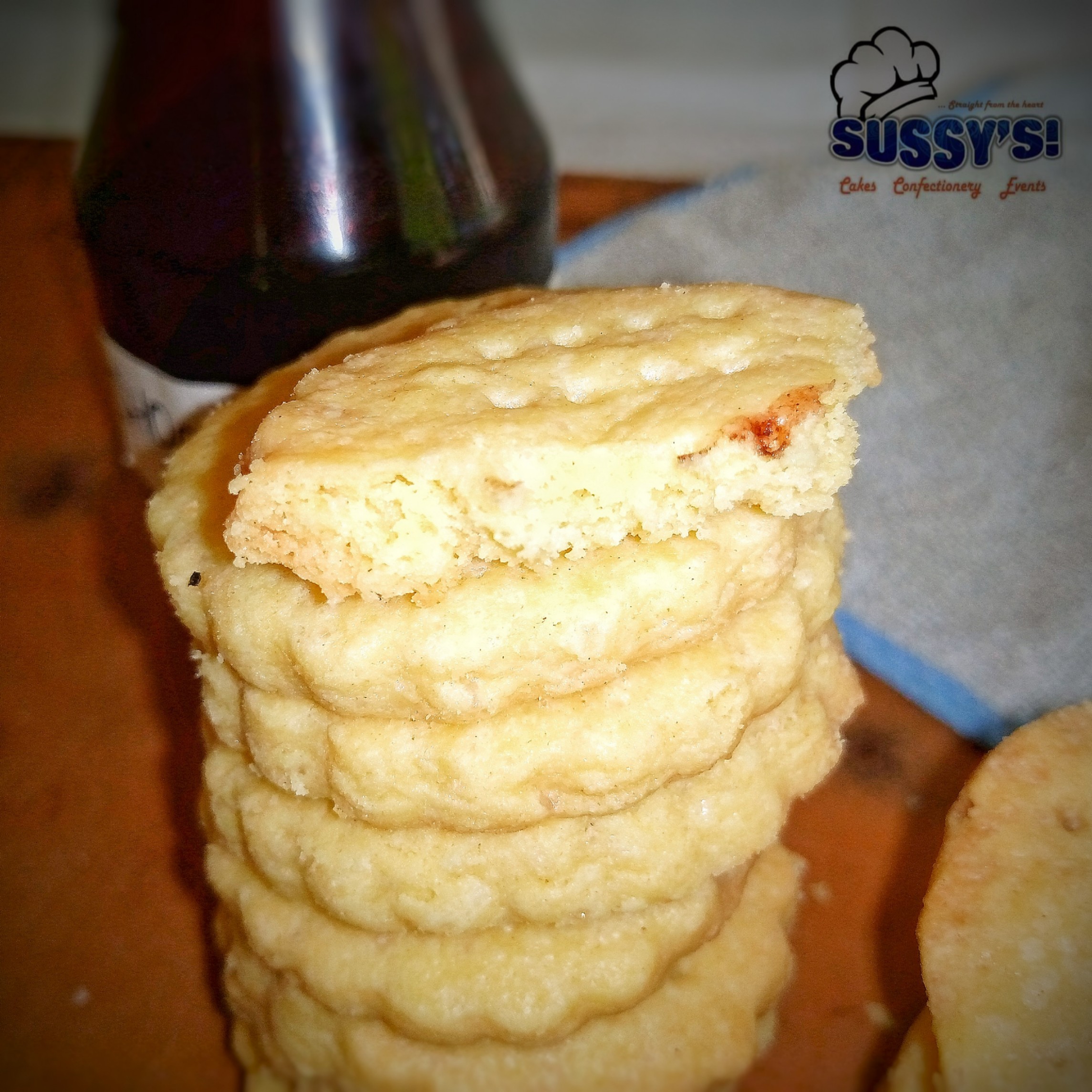
In the last two weeks, I have been sharing my SIMPLEST COOKIES RECIPES with items already in your kitchen or bakery. This week’s recipe is also another follow-up on the Cookies spree. You know the kids are back to school and you would want to pack alongside their meals, snacks to last them till the close of the day.
This buttery Cookies is a perfect snack option! You simply can’t say you have made cookies if you don’t add this perfectly crumbly, irresistibly buttery and wonderfully delicious, shortbread cookies to the bargain.
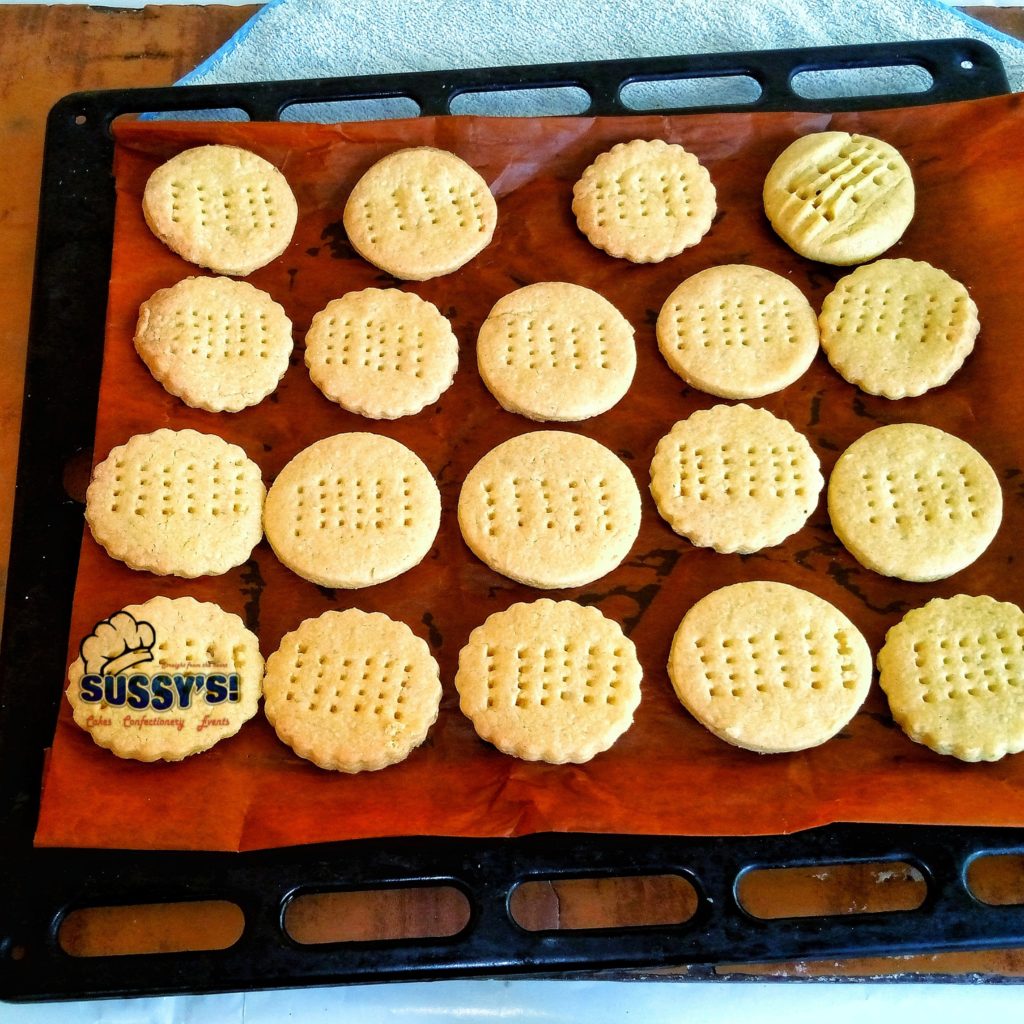
Shortbread, is just one of the best classic cookies in the world. It’s so perfect that it can leave a lasting memory when served in an elegant tea party! Apart from its sinfully buttery texture, it’s one of the easiest cookies to make with very simple ingredients! No eggs or leavening agents (such as baking powder or baking soda) like my EGGLESS SUGAR COOKIES.
Shortbread is traditionally a Scottish biscuit. Prior to now, shortbreads were quite expensive. They were usually made specially for occasions like Christmas and Hogmanay (celebrating the last day of an old year; like cross-over celebration in Nigeria).
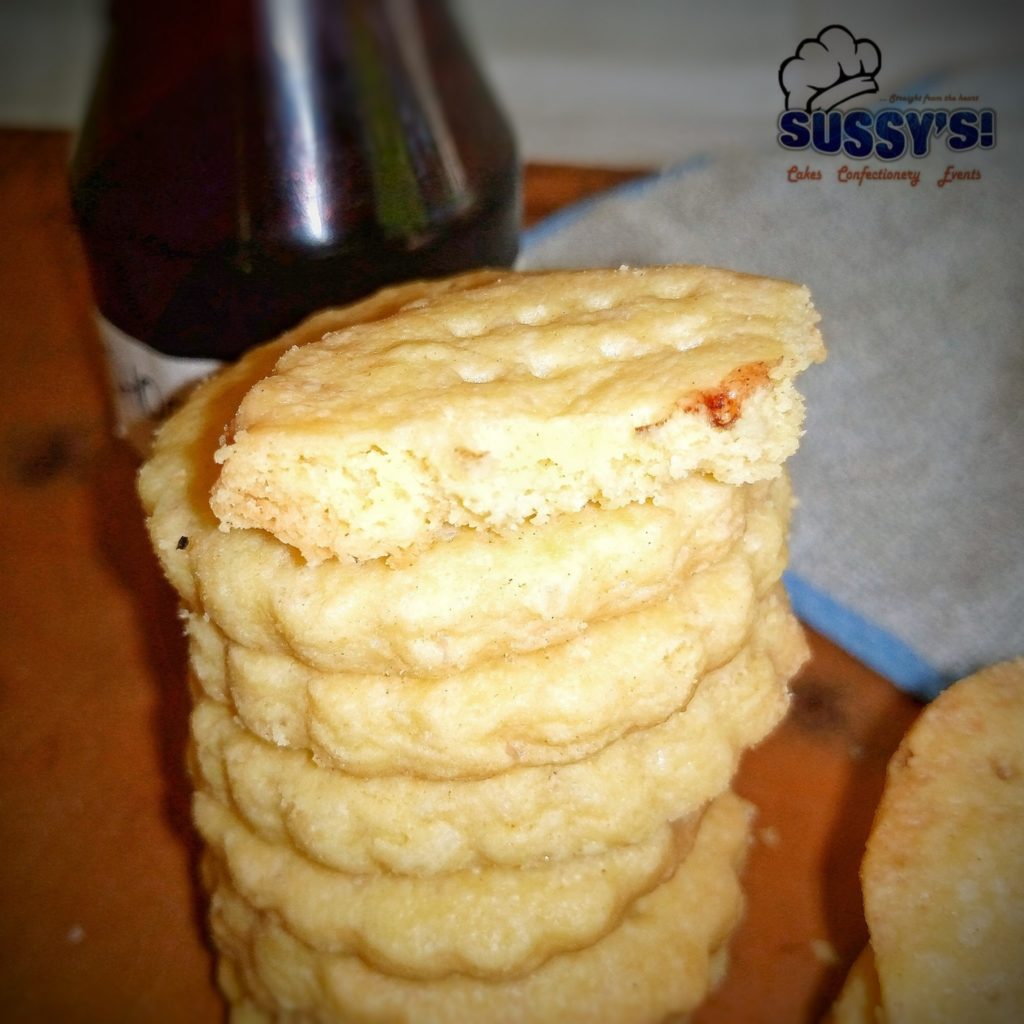
Historically, shortbread was birthed in Scotland. It was baked, cut into triangular wedges, and flavoured. The first printed Shortbread recipe, in 1736, was from a Scotswoman named Mrs McLintock. Traditionally Scottish shortbread is baked in either a rectangular or square slab and cut into fingers, as individual round biscuits, or in one large circle and cut into triangles. But you can cut them into any shape you like and also use cookie stamps.
Shortbread’s crumbly texture is due to its high fat content, provided by the butter. The short or crumbly texture is a result of the fat inhibiting the formation of long protein (gluten) strands. This takes me to the ingredients used in making a traditional Scottish shortbread.
INGREDIENTS IN TRADITIONAL SCOTTISH SHORTBREAD
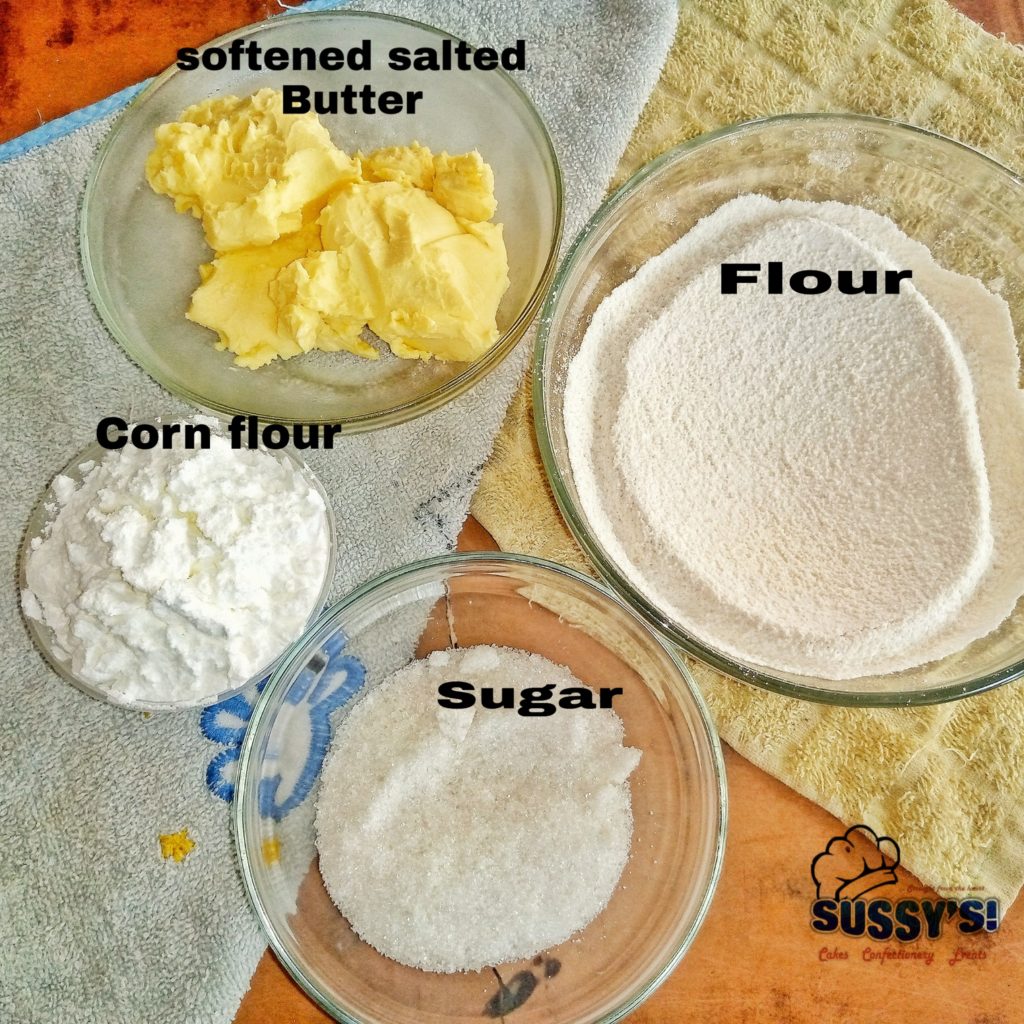
There’s a beautiful formula for the ingredients used for making shortbread. It is the proportion of sugar, butter, and flour which should be 1:2:3. In other words, if your sugar is 100g, your butter will be 200g, and your flour 300g.
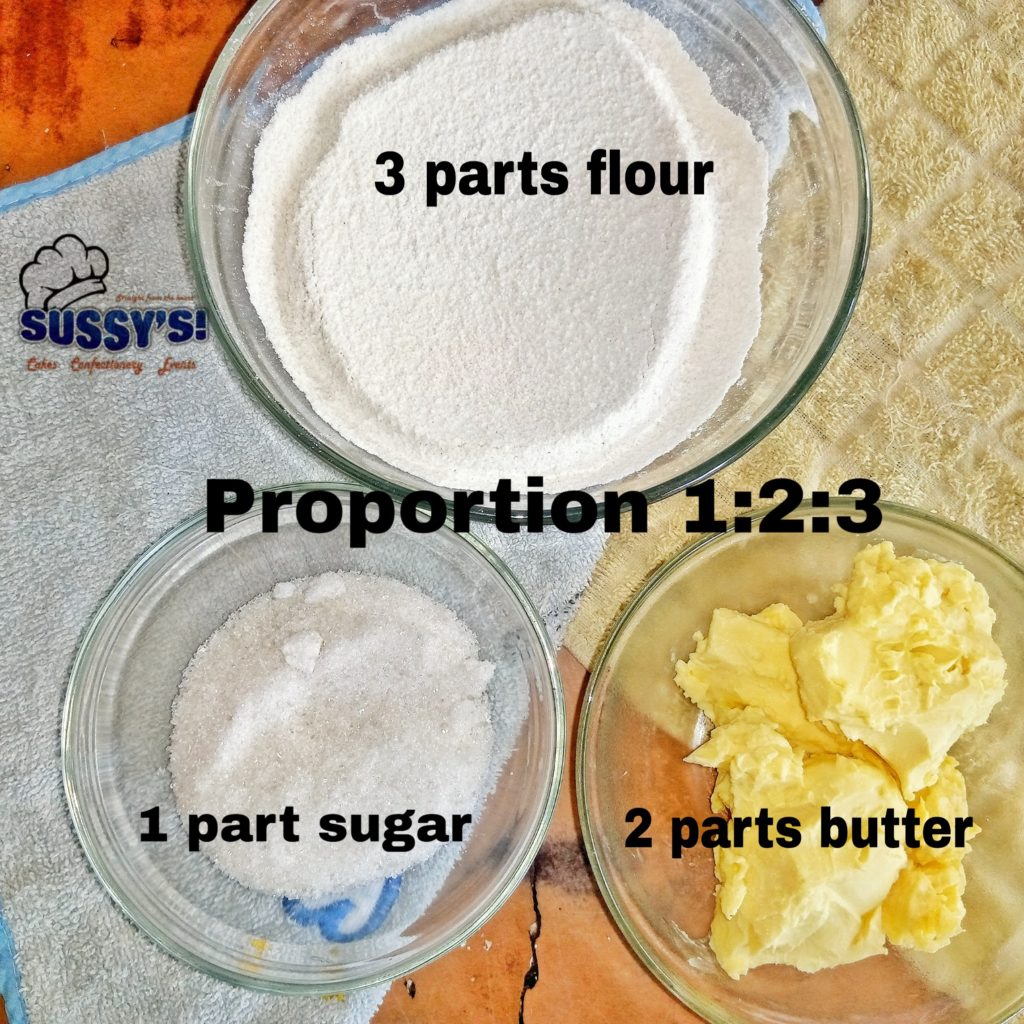
- Flour : For me I used two kinds of flour. I used a regular all-purpose flour and Cornflour. You can use rice flour too. The reason I use a part of corn flour is to alter the texture and make them lighter, with a nicer, melt in your mouth texture.
- Butter: Another important thing is butter! Yes. The key to a good Scottish shortbread is the quality of the butter. That is what flavors the shortbread and the shortbread is only as good as the butter. I haven’t used margarine with my shortbread recipe before because I feel it’s an insult to the traditional recipes, lol. No offence intended. Here I am using salted softened Butter. If you’re using unsalted butter, add a pinch of salt to the recipe to balance the sweetness.
- Sugar: I used granulated sugar. You can also use castor sugar or even confectionery sugar.
You can also add spices if you like to your shortbread biscuits. It’s forgiving. Spices like grounded cinnamon, grounded almond, rosemary, etc.
TIPS TO MAKING THE PERFECT BUTTERY TRADITIONAL SCOTTISH SHORTBREAD
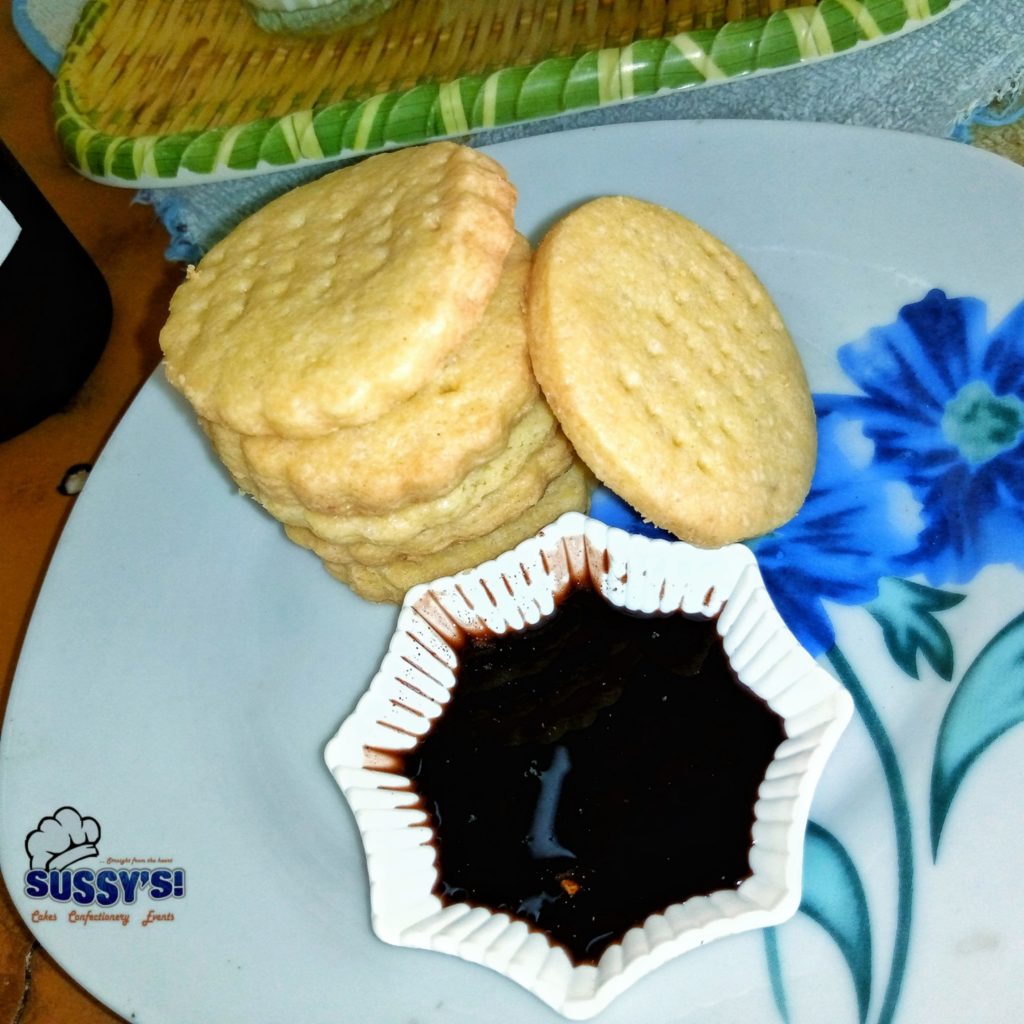
- Read and follow the recipe till the end and understand it.
- All items except butter should be at room temperature. Butter should be cold to touch and softened, not hard and frozen.
- Use a good brand of butter. The quality of butter is very important.
- If using a mixer, use the paddle attachment on an electric stand mixer to combine the softened butter, flour, and powdered sugar until a ball of soft dough forms. Infact, beat the butter just enough to make it nice and creamy, but not fluffy. The more softened your butter, the more your biscuit would spread. That’s why I prefer the manual method of mixing with my hand whisk.
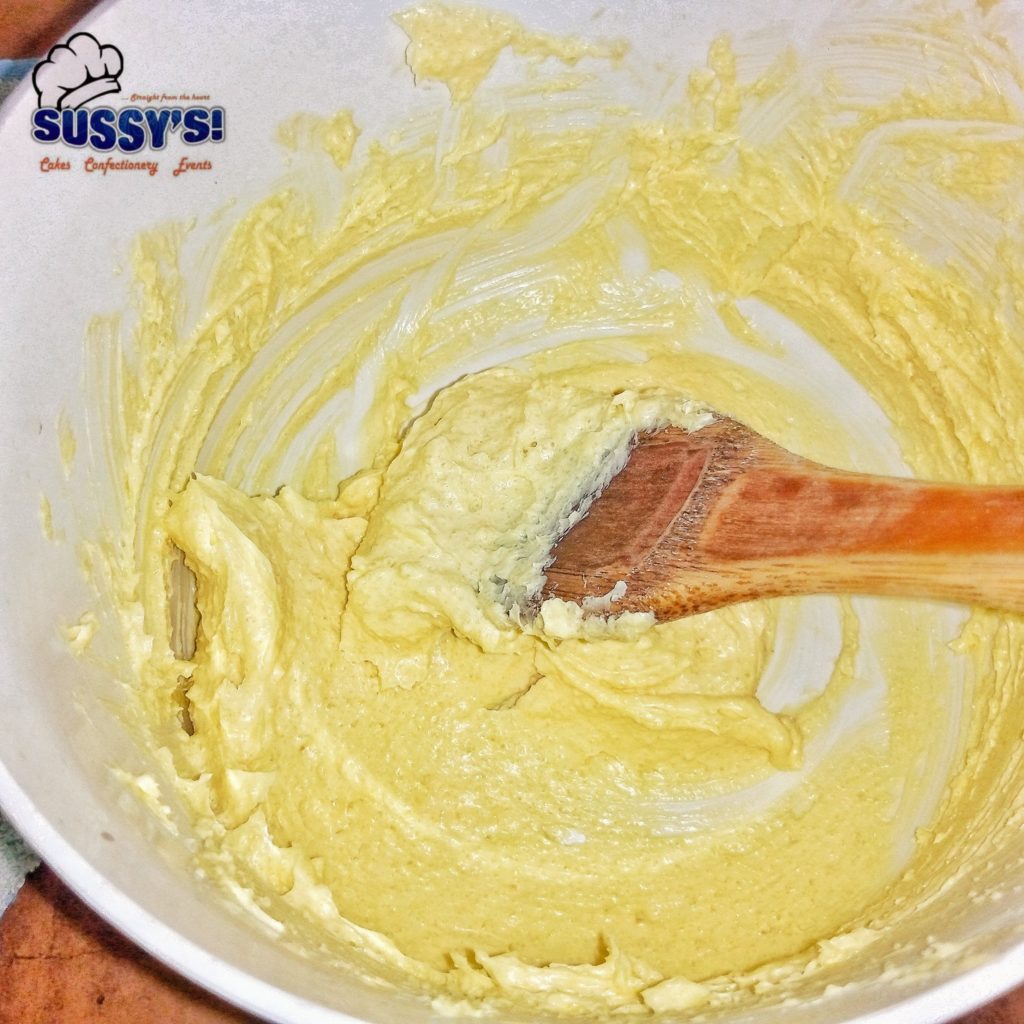
- Roll-out dough to about ¼-inch thickness.
- I don’t roll my shortbread dough on a floored surface, because I don’t want to introduce any extra flour to the measurement. So what I do is to roll inbetween parchment paper or brown paper. This way the original texture is preserved.
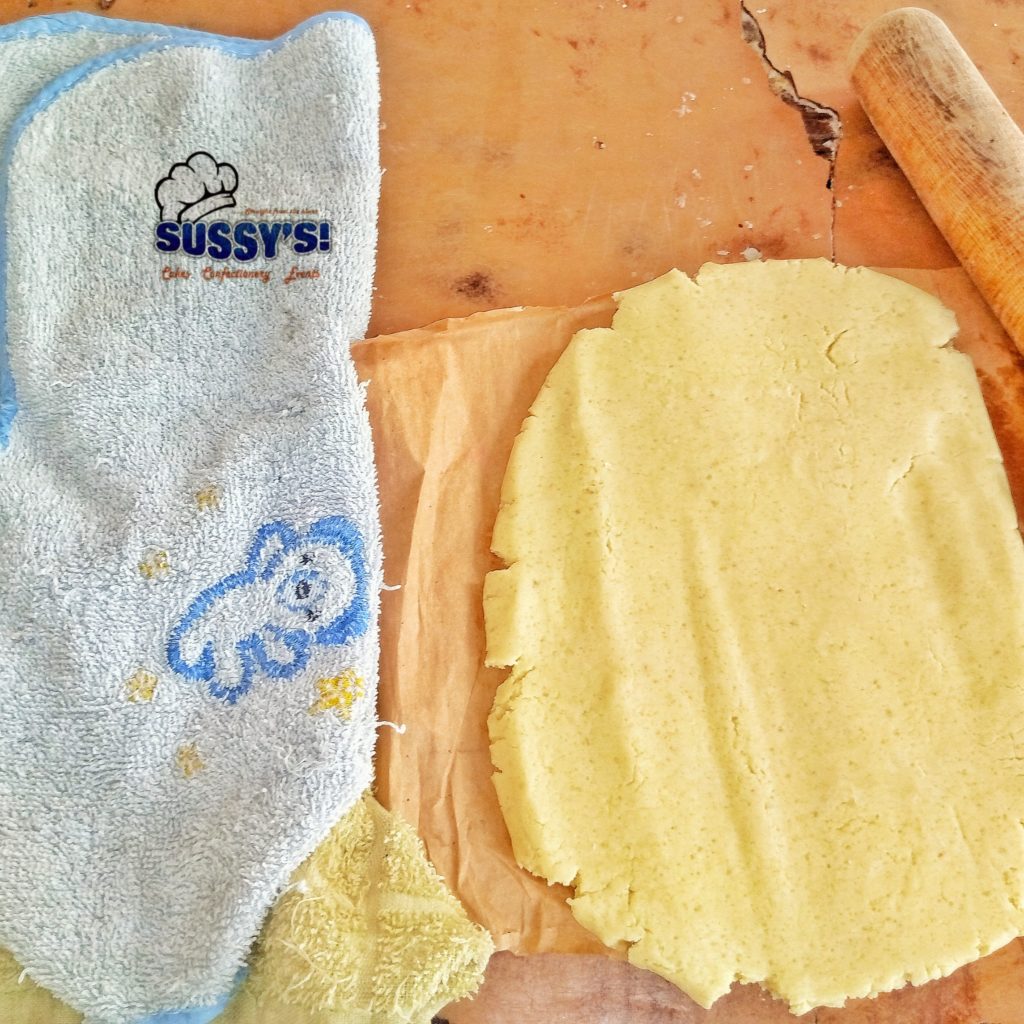
Alternatively (which is my most preferably method), to achieve a cleaner cut or make work easier, I place cookie dough in a large ziplock bag or cling nylon; leaving the bag open to allow air escape; and I roll.
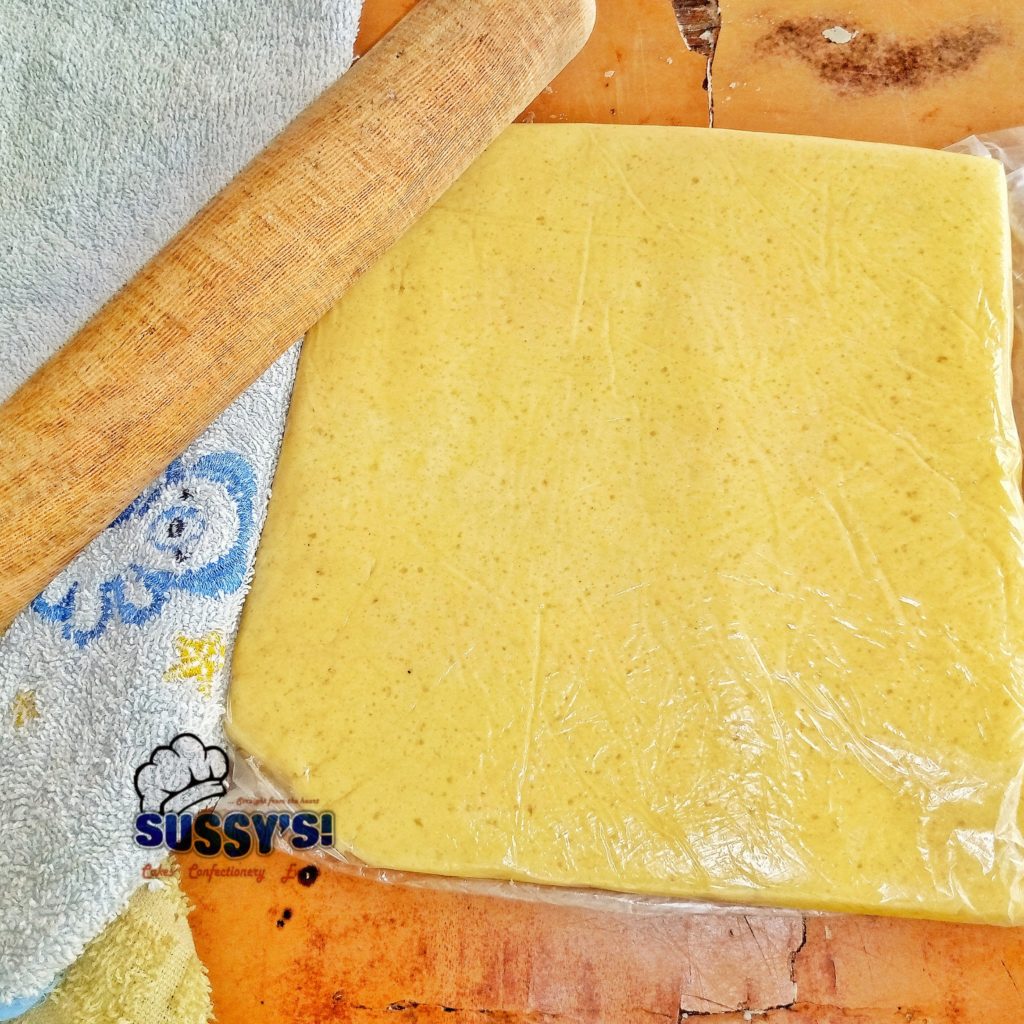
- Chill your dough after rolling out and before baking! This is very very important. It leaves a fine perfect cut out. Just how it’s meant to be. And at the end the taste is heavenly!
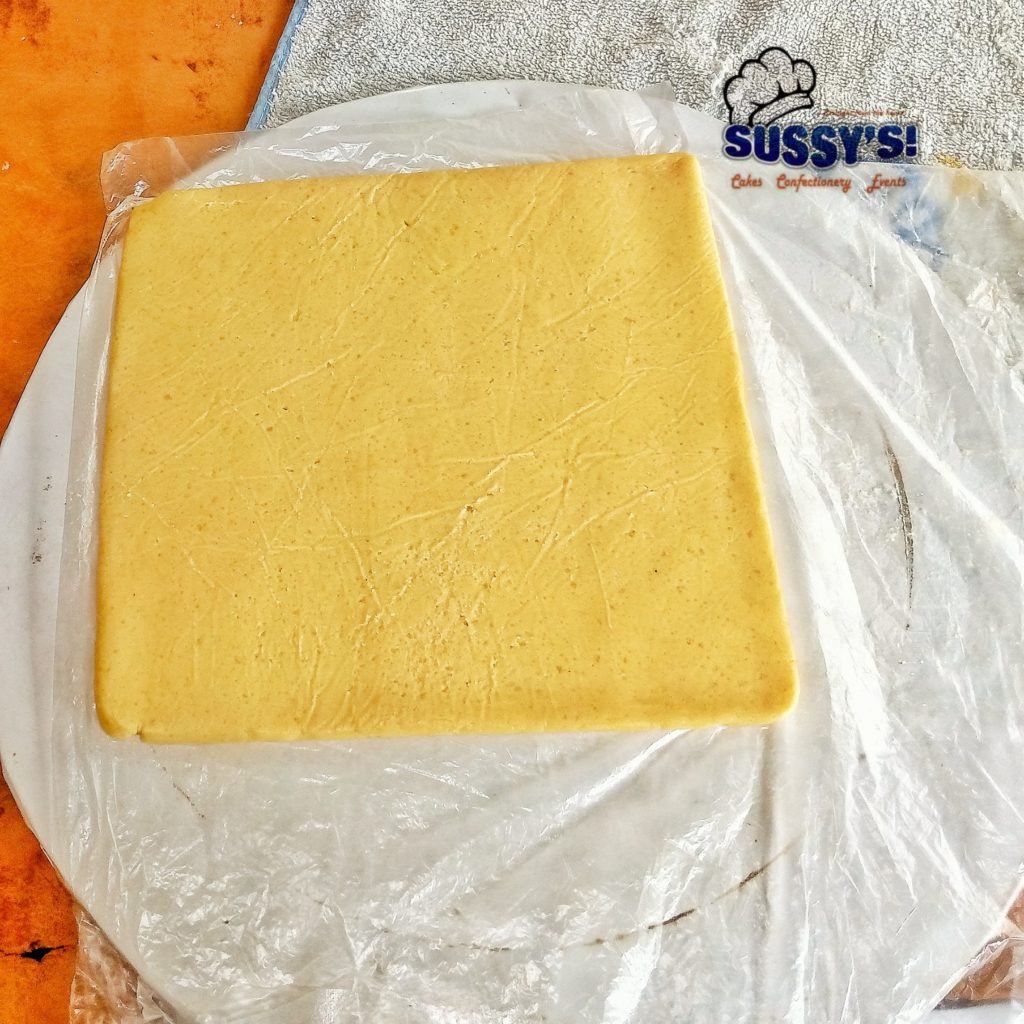
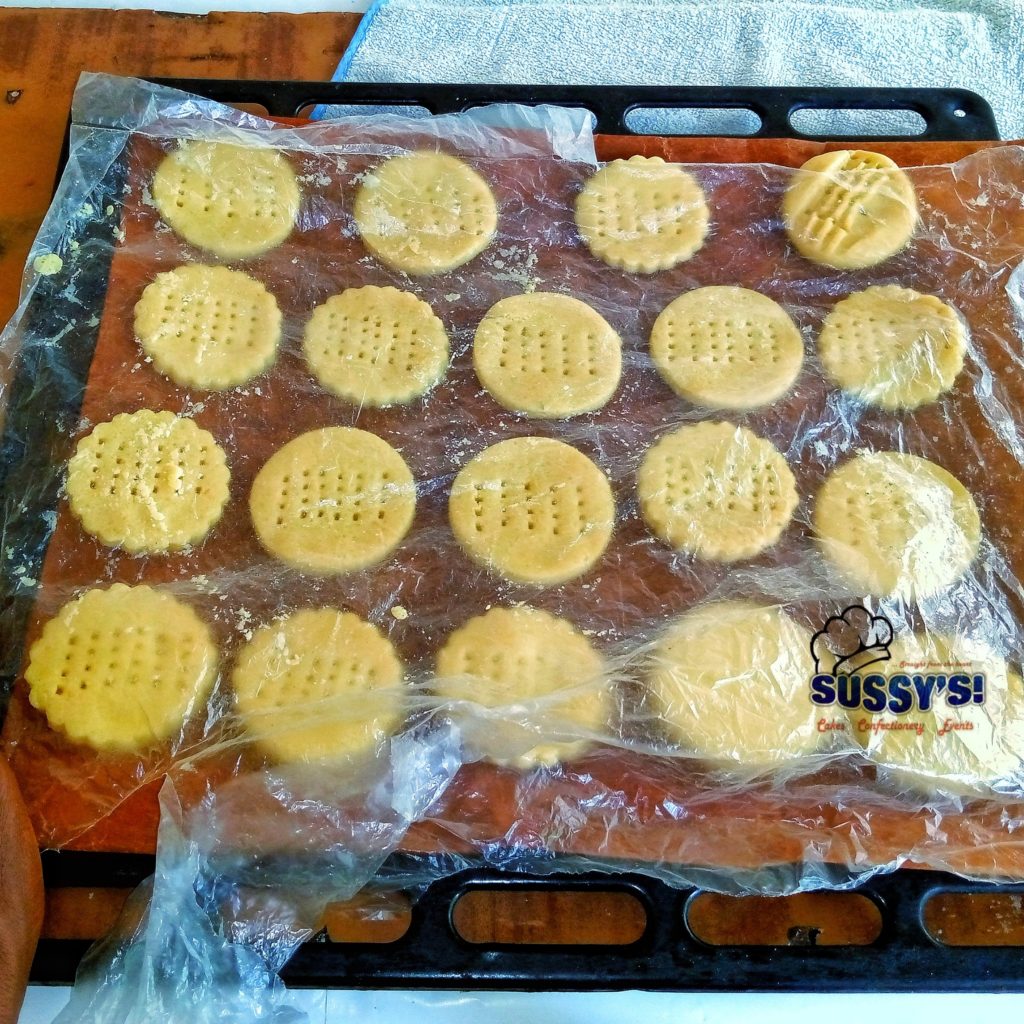
- Pierce the dough with the tines of a fork. This prevents the biscuits from puffing up while baking. Also, poking holes in the top of the shortbread dough allows the heat to evenly penetrate the dessert, which helps it bake evenly.
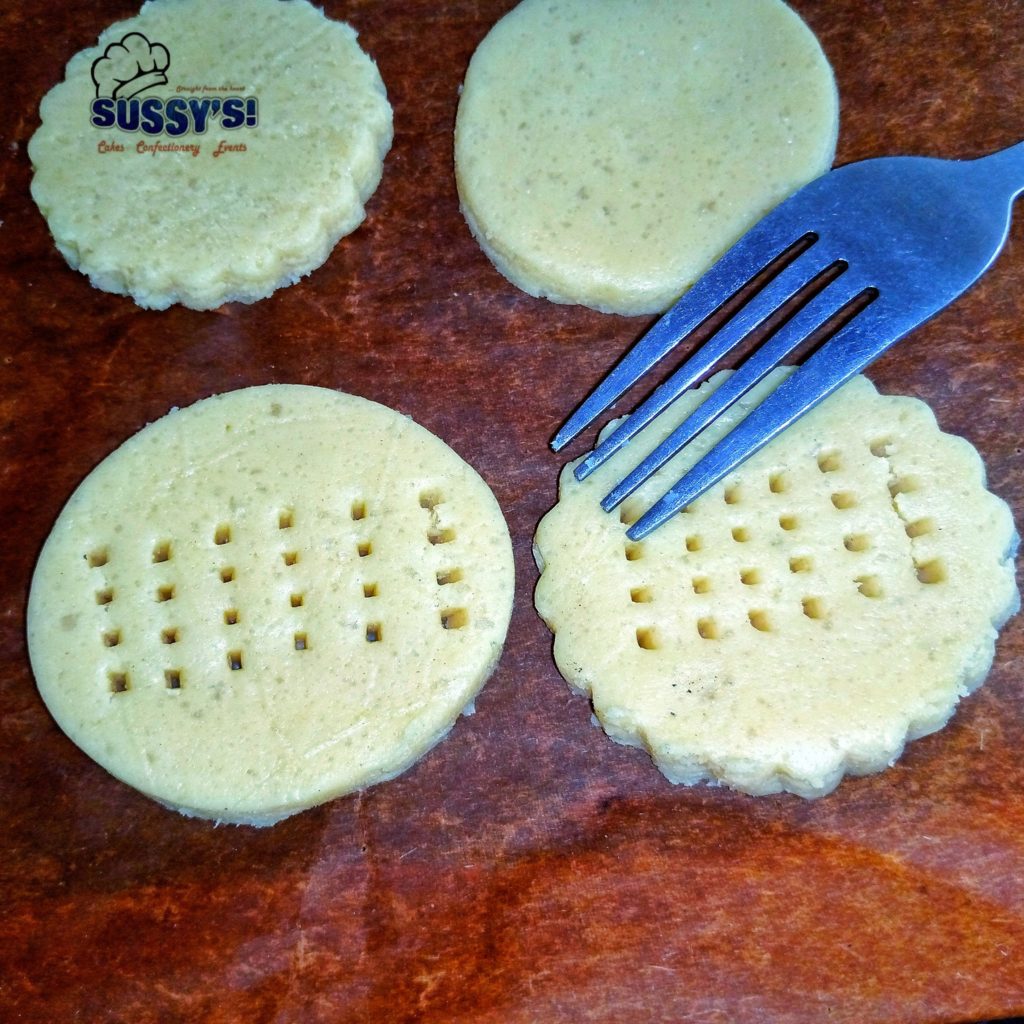
- Do not overbake. Remove the cookies from the oven immediately they are just slightly about to be golden in colour. They would still be a little bit soft. That’s fine. The colour should still be pale. Allow them cool in the pan for 10 minutes then transfer them to a rack to cool completely. They will firm up. However my best method for my Scottish cookies is to leave them in the oven, for the oven to get cold!
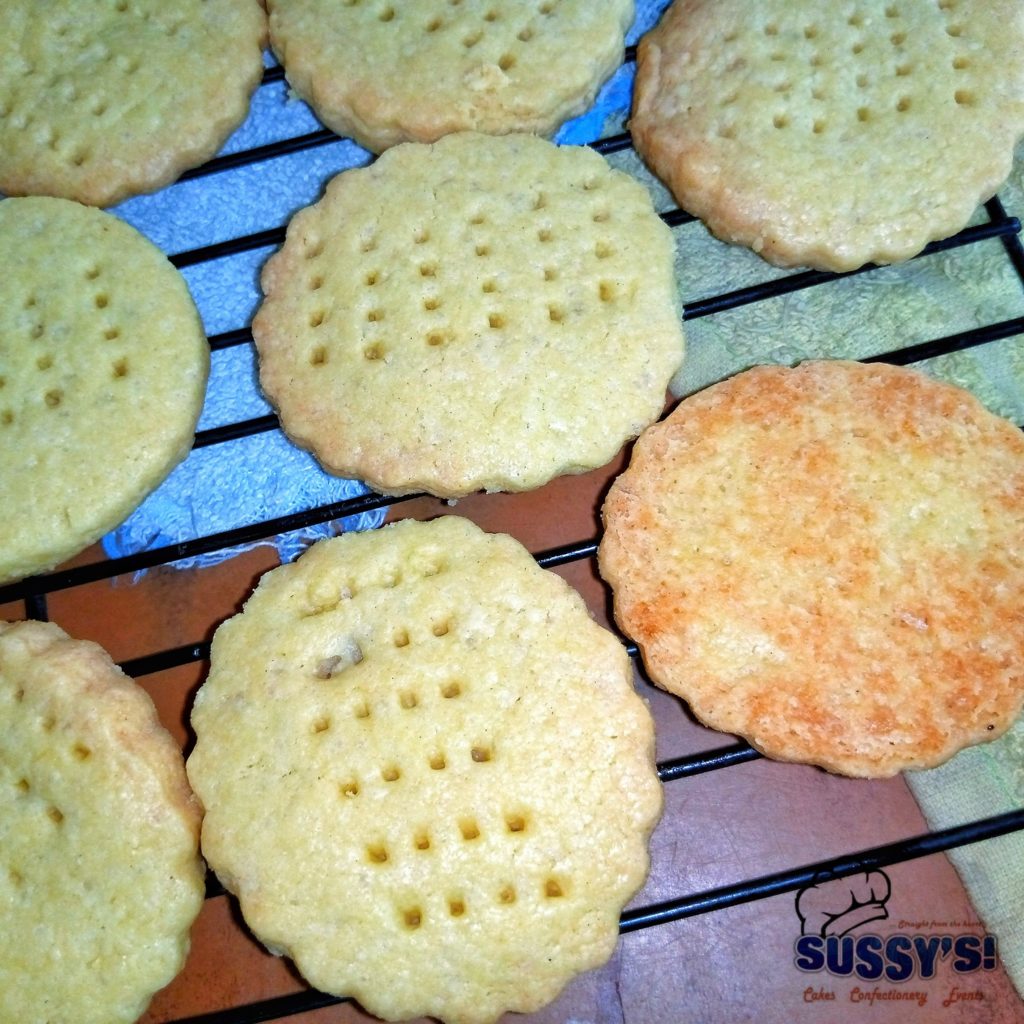
How I do this is at the end of 25-30 minutes of baking period, my cookies would still be pale, and slightly soft. I then turn off my oven, open my oven’s door a little and keep something inbetween to keep the door ajar. Then allow the cookies stay inside the oven till the oven is completely cool. Then I remove the baking tray from the oven, transfer my cookies to a rack and allow it cool completely!
HOW TO MAKE PERFECT TRADITIONAL SCOTTISH SHORTBREAD COOKIES
- Measure out all items and set aside.

- In a large mixing bowl, add your butter and sugar. Using a hand whisk, beat butter and sugar till just softened. If using an electric stand mixer, use the paddle attachment and whisk on low speed till just softened.
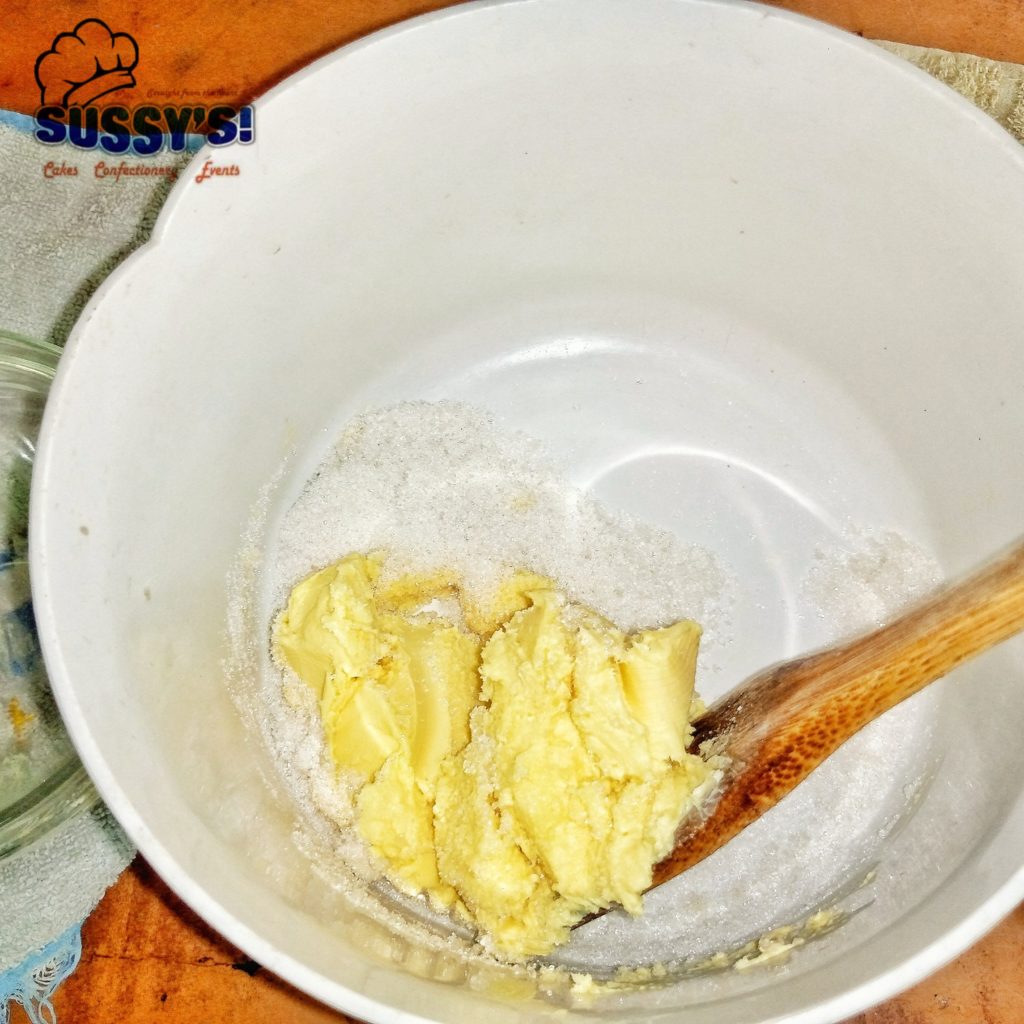

- Next add flour, and mix to combine. Dough will be dry, it’s fine. Transfer dough to a working surface if you mixed manually and work dough gently till it forms a smooth dough. If using an electric stand mixer, add your flour and mix gently till dough is smooth on very low speed.
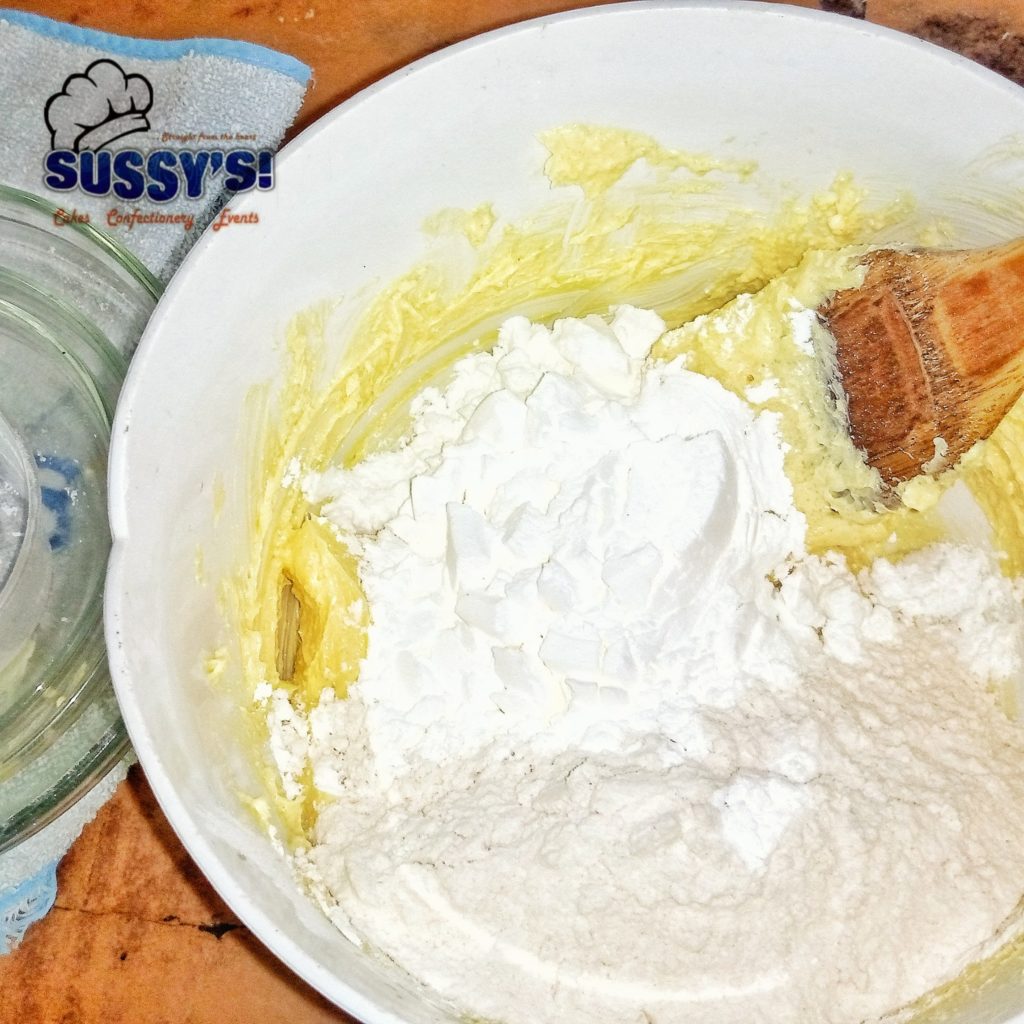
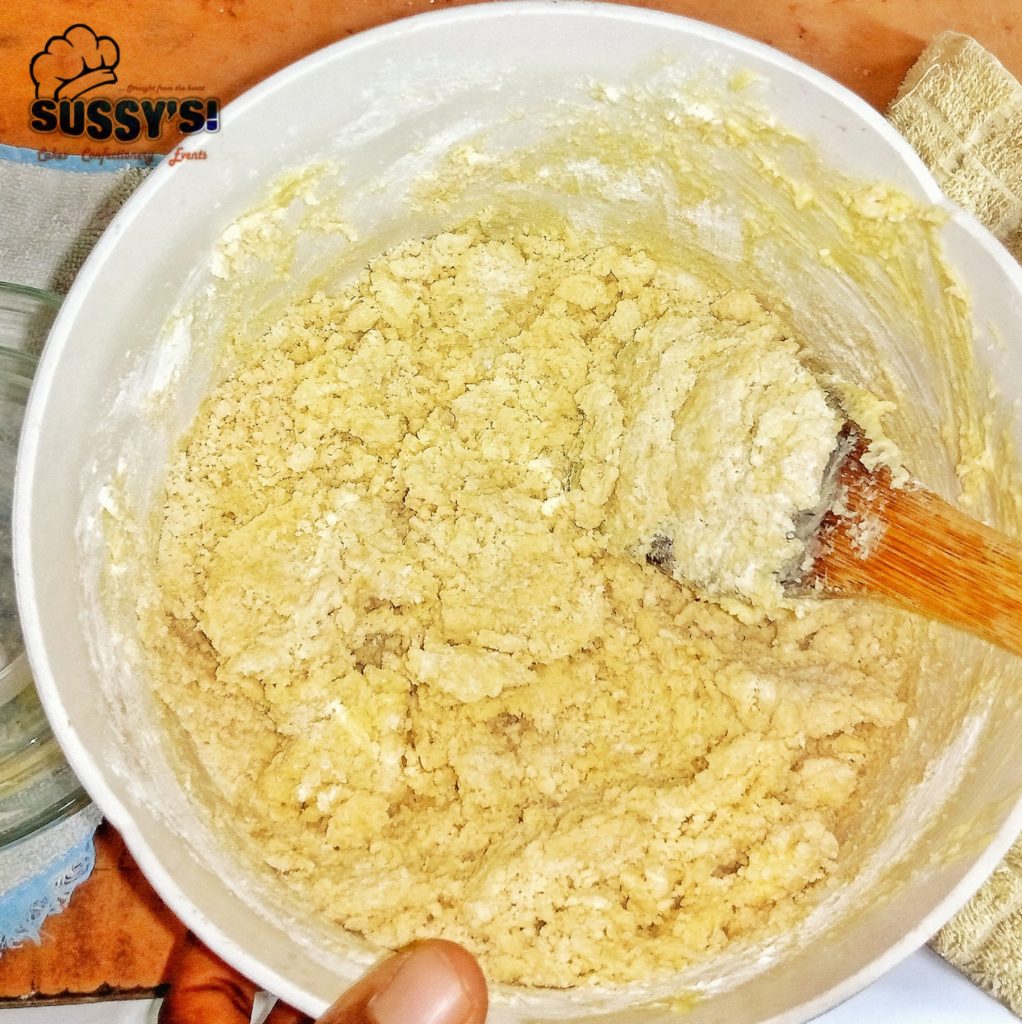
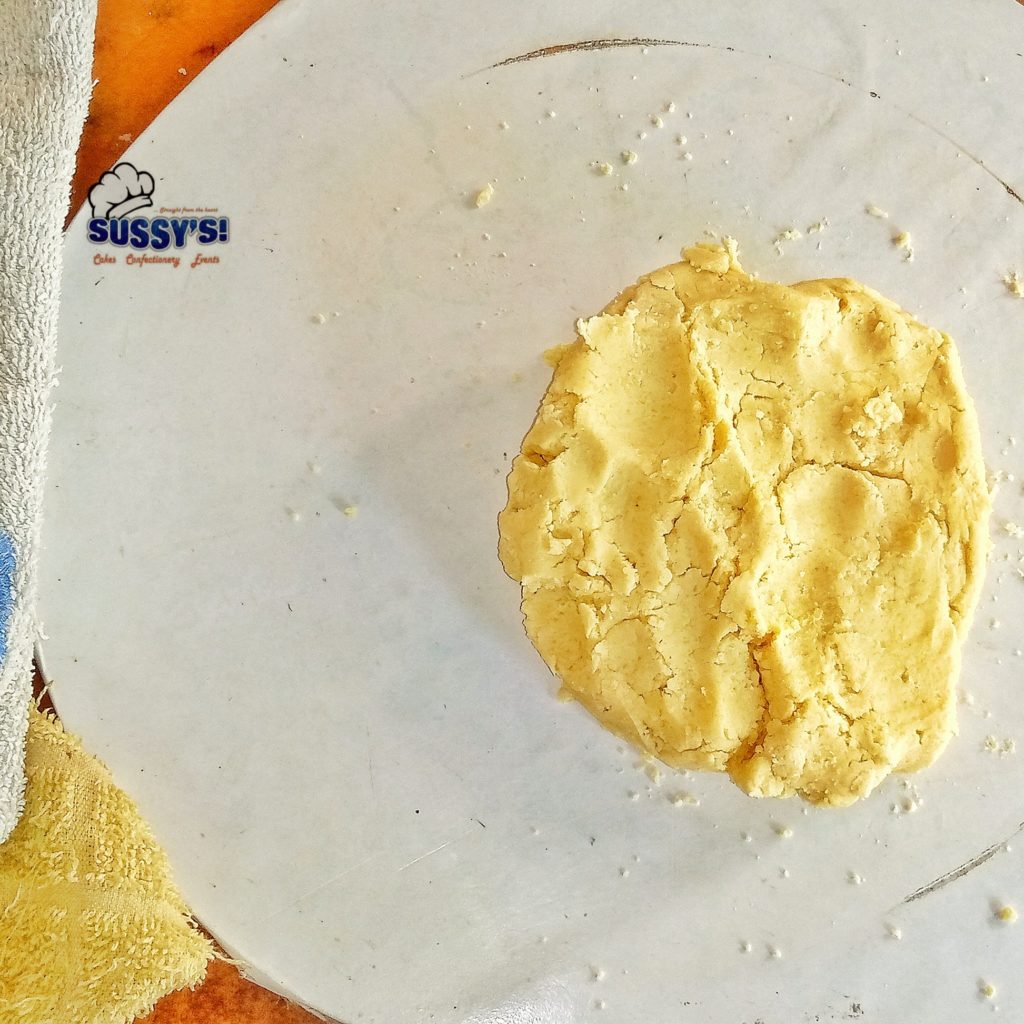
- Transfer dough to a ziplock bag (leave the bag open) or place inbetween parchment paper and using a rolling pin, roll out the dough to about ¼-inch thickness.

- Preheat your oven to 160C or 325F now.
- Next chill the roll out dough for 20 minutes. Now prepare your baking tray by placing a parchment paper on it, set aside.

- Get your chilled dough, using any cookie cutter of your choice, cut out into any shape you like. Place them on the lined baking tray.
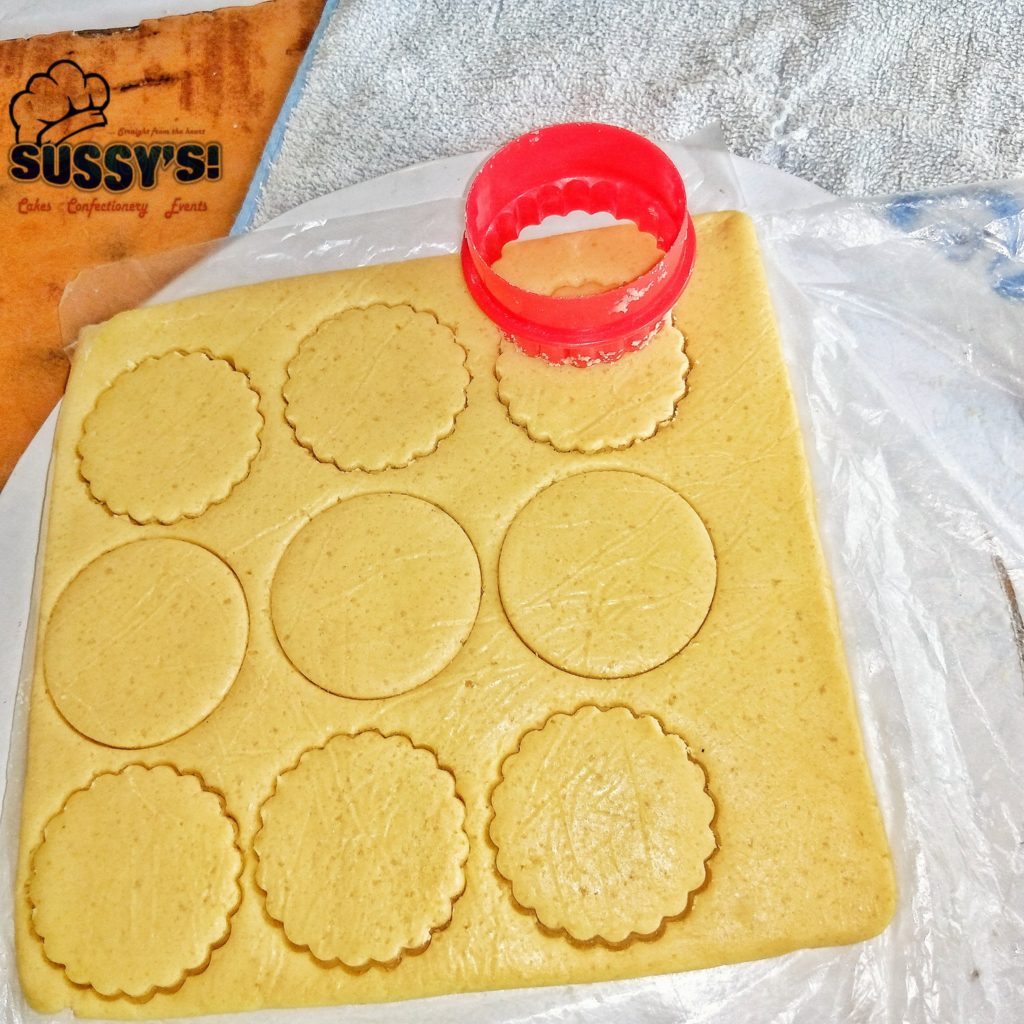
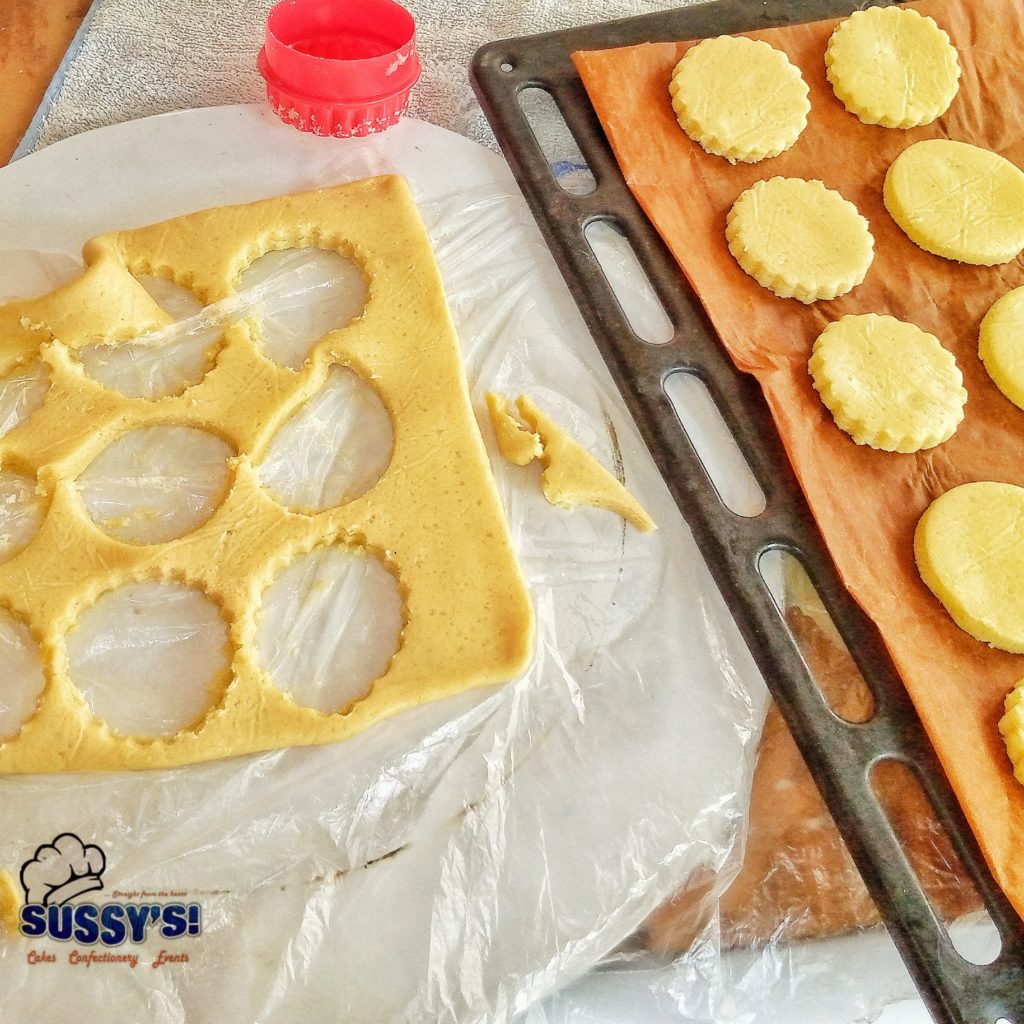
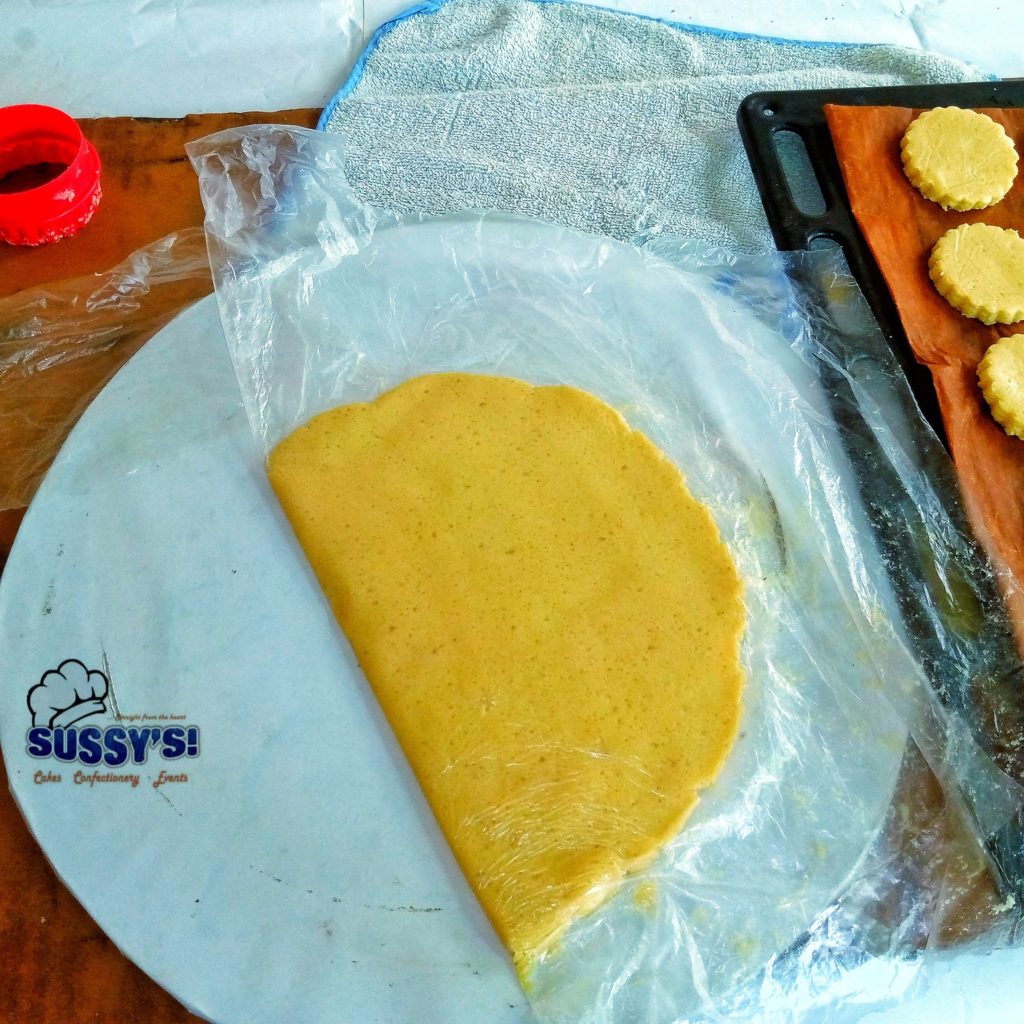
- Using the tines of a fork, pierce each cut-out accordingly. Now chill the cut-out cookies for another 20 minutes. DON’T SKIP ANY OF THESE CHILLING PERIODS.
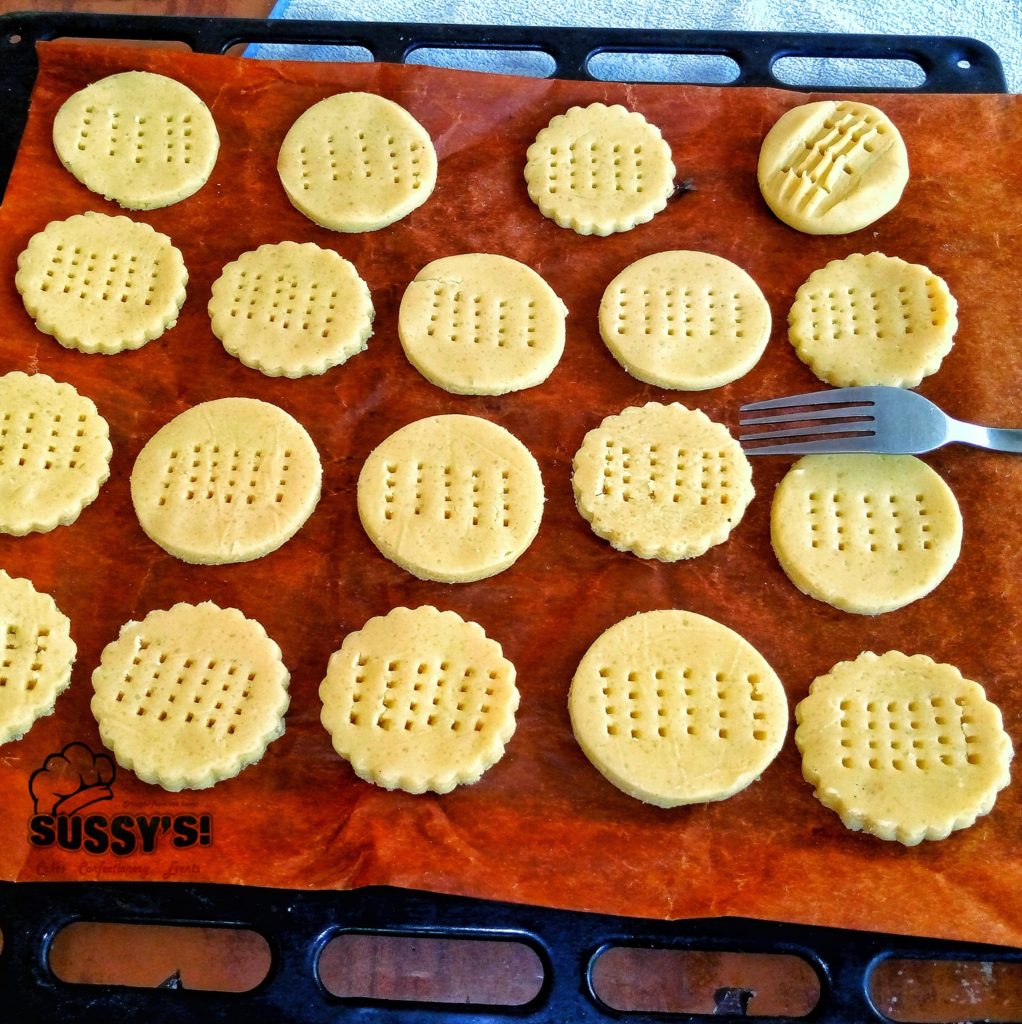
- Place baking tray in a preheated oven and allow to bake for 25-30 minutes. Making sure not to over bake. The colour of your cookies should still be pale.
- Once baked remove from oven, allow to cool for 10 minutes. Then transfer cookies to a rack to cool completely before eating or storing, or decorating. Enjoy!
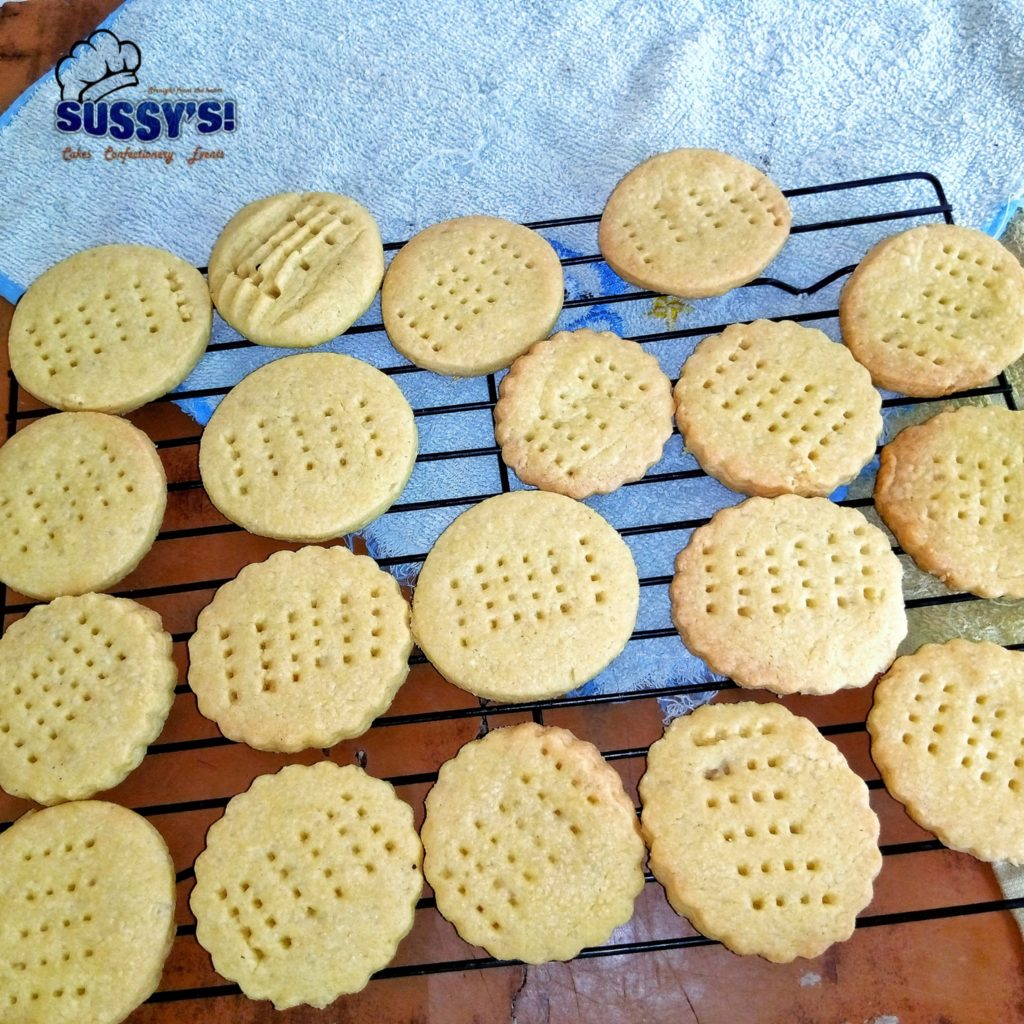
HOW TO STORE TRADITIONAL SCOTTISH SHORTBREAD
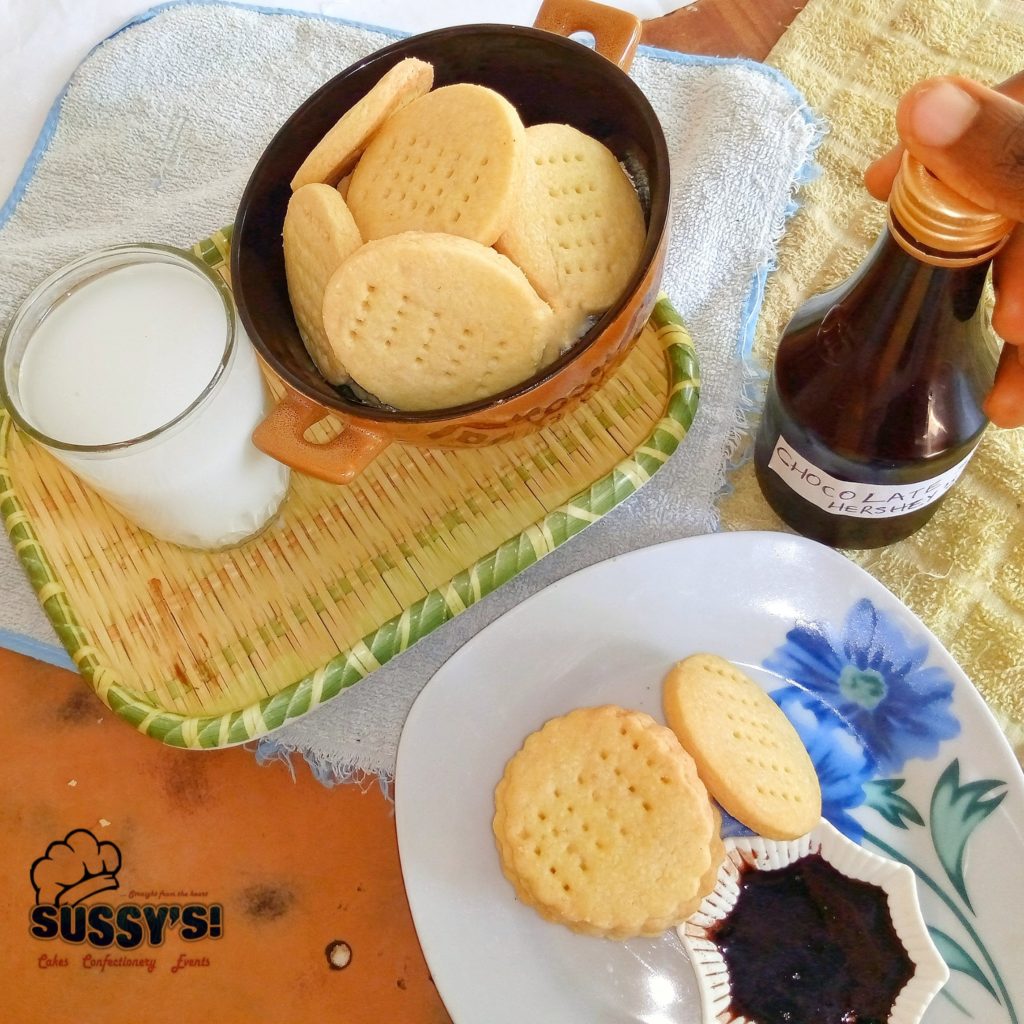
- Store the cookies in an airtight container at room temperature for up to 1 week.
- To freeze, allow the cookies to cool completely. Then wrap cooled cookies (a few at a time) tightly with plastic wrap. Then wrap again in foil for an added layer of airtight protection. Stash the foil-wrapped cookies in large plastic freezer bags or storage containers. They will stay fresh in the freezer for up to 2 months.
- For more cookies tips and recipes, feel free to sign up for my ONLINE COOKIES CLASS where I divulged all you ever need to know about cookies production.
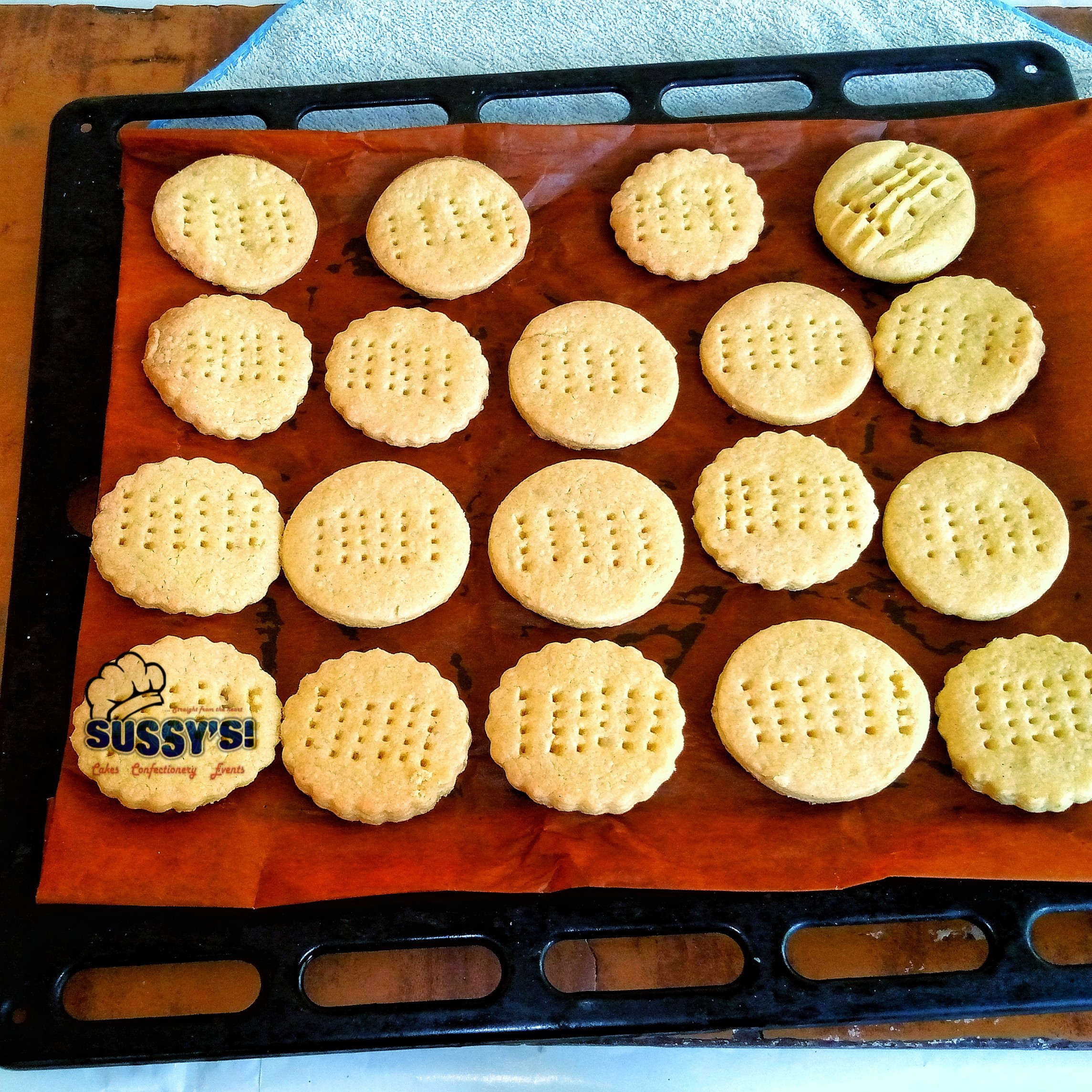
TRADITIONAL SCOTTISH SHORTBREAD COOKIES RECIPE | 4 ingredients Scottish shortbread
Equipment
- 1 Mixing Bowl
- 1 Wooden spatula
- 1 Oven
- 1 Rolling Pin
- 1 Baking tray
- 1 Cooling rack
Ingredients
- 75 grams granulated white Sugar or caster sugar or confectionery sugar
- 150 grams salted softened Butter if using unsalted butter add a pinch of salt
- 150 grams all-purpose Flour
- 75 grams Corn flour or Cornstarch you can also use rice flour
Instructions
- Measure out all items and set aside.75 grams granulated white Sugar, 150 grams salted softened Butter, 150 grams all-purpose Flour, 75 grams Corn flour or Cornstarch
- In a large mixing bowl, add your butter and sugar. Using a hand whisk, beat butter and sugar till just softened. If using an electric stand mixer, use the paddle attachment and whisk on low speed till just softened.75 grams granulated white Sugar, 150 grams salted softened Butter
- Next add flour and corn flour, and mix to combine. Dough will be dry, it's fine. Transfer dough to a working surface if you mixed manually and work dough gently till it forms a smooth dough. If using an electric stand mixer, add your flour and mix gently till dough is smooth on very low speed.150 grams all-purpose Flour, 75 grams Corn flour or Cornstarch
- Transfer dough to a ziplock bag (leave the bag open) or place inbetween parchment paper and using a rolling pin, roll out the dough to about ¼-inch thickness.
- Preheat your oven to 160C or 325F now.
- Next chill the roll out dough for 20 minutes. Now prepare your baking tray by placing a parchment paper on it, set aside.
- Get your chilled dough, using any cookie cutter of your choice, cut out into any shape you like. Place them on the lined baking tray.
- Using the tines of a fork, pierce each cut-out accordingly. Now chill the cut-out cookies for another 20 minutes. DON'T SKIP ANY OF THESE CHILLING PERIODS.
- Place baking tray in a preheated oven and allow to bake for 25-30 minutes. Making sure not to over bake. The colour of your cookies should still be pale.
- Once baked remove from oven, allow to cool for 10 minutes. Then transfer cookies to a rack to cool completely before eating or storing, or decorating.Enjoy!
Video
Notes
Store the cookies in an airtight container at room temperature for up to 1 week.
To freeze, allow the cookies to cool completely. Then wrap cooled cookies (a few at a time) tightly with plastic wrap. Then wrap again in foil for an added layer of airtight protection. Stash the foil-wrapped cookies in large plastic freezer bags or storage containers. They will stay fresh in the freezer for up to 2 months.
For more cookies tips and recipes, feel free to sign up for my ONLINE COOKIES CLASS where I divulged all you ever need to know about cookies production.
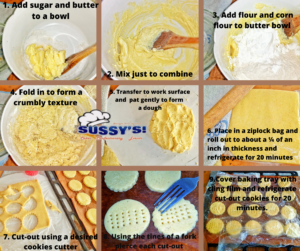
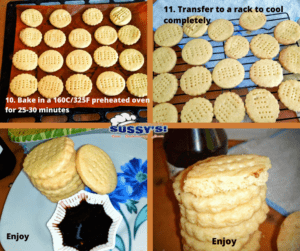
If you liked this recipe, kindly leave me a reaction (rate the recipe). This will encourage me to create more no-fail homemade simple recipes! Also use the share button to share the recipe. Thank you.
Sussan apeh
To sign up for my CLASSES either online that runs 24/7 or on-site please send me a direct message via email or through any of my social media platform.
Remember to always tag us to your creation using #sussycakesrecipes
I love to see your feedback and creation!
Nutrition Facts
3 servings per container
- Amount Per ServingCalories725
- % Daily Value *
- Total Fat
54g
70%
- Saturated Fat 130g 650%
- Cholesterol 36mg 12%
- Sodium 13mg 1%
- Potassium 3mg 1%
- Total Carbohydrate
30g
11%
- Dietary Fiber 11g 40%
- Total Sugars 25.3g
- Protein 7.3g 15%
- Calcium 2mg 1%
- Iron 16mg 89%
- Vitamin D 140mcg 700%
* The % Daily Value tells you how much a nutrient in a serving of food contributes to a daily diet. 2,000 calories a day is used for general nutrition advice.
